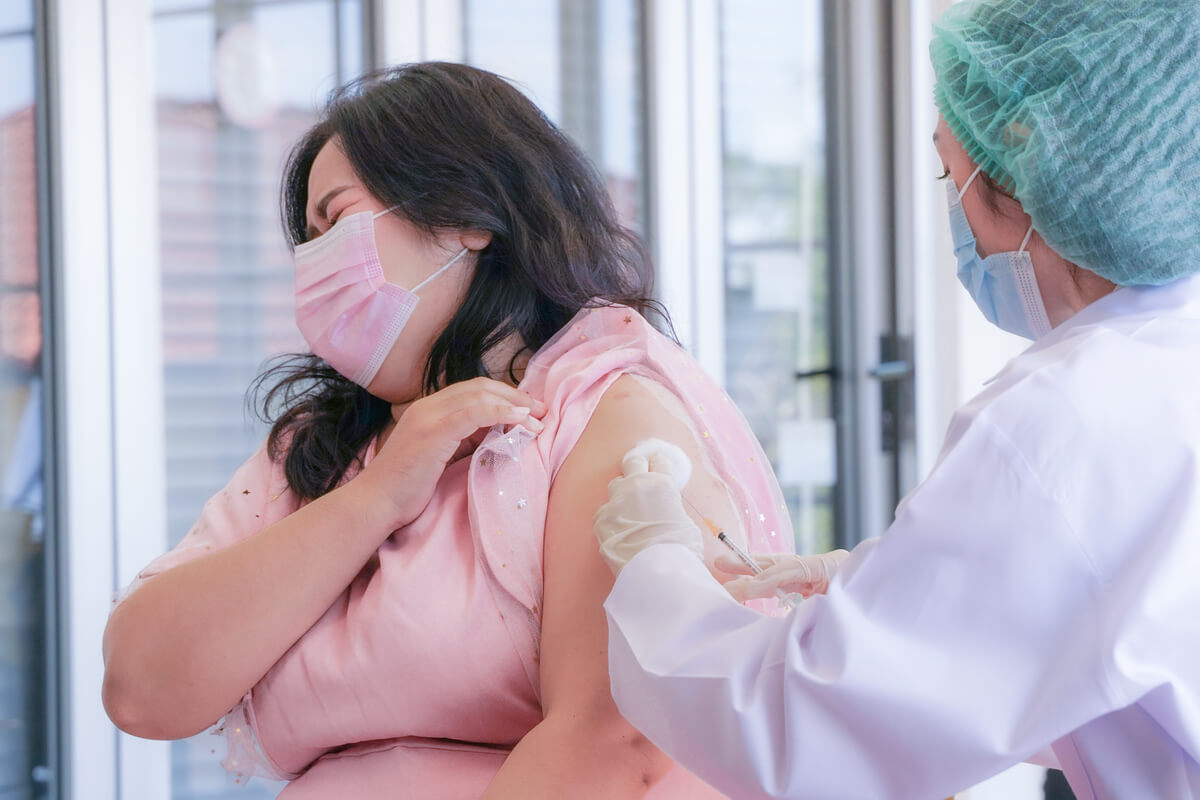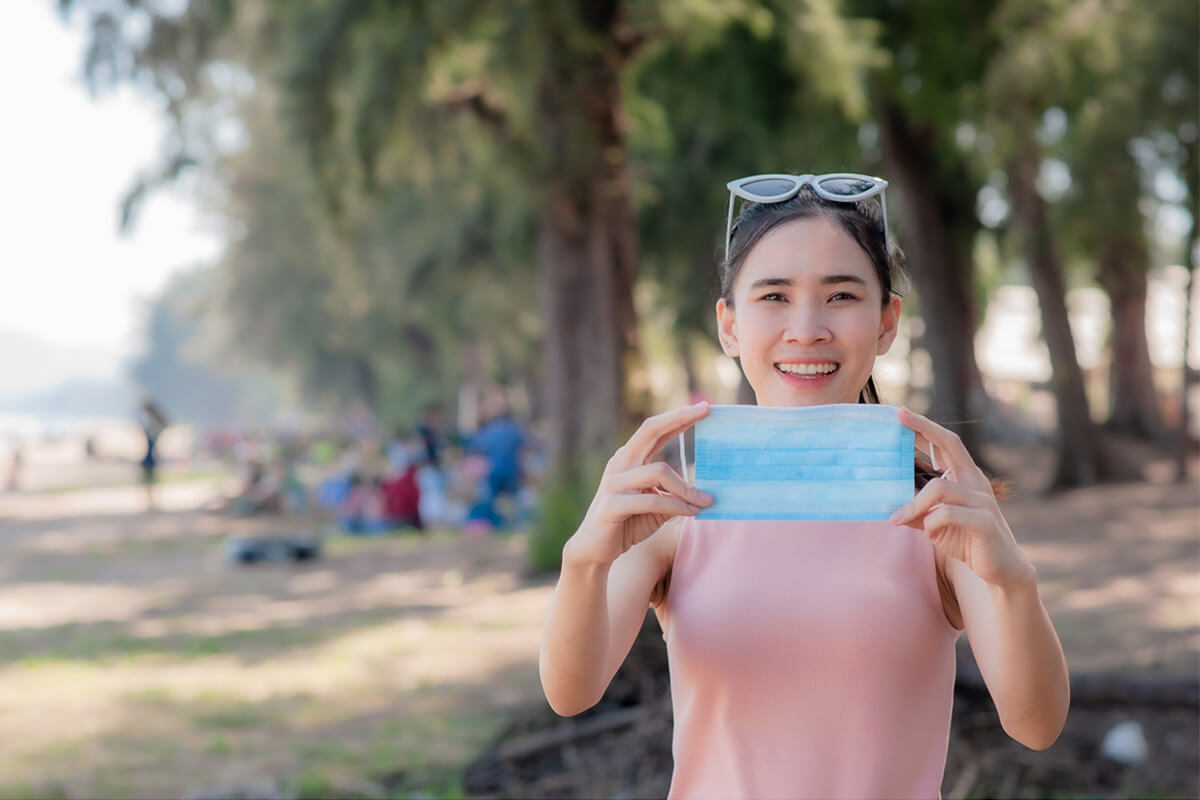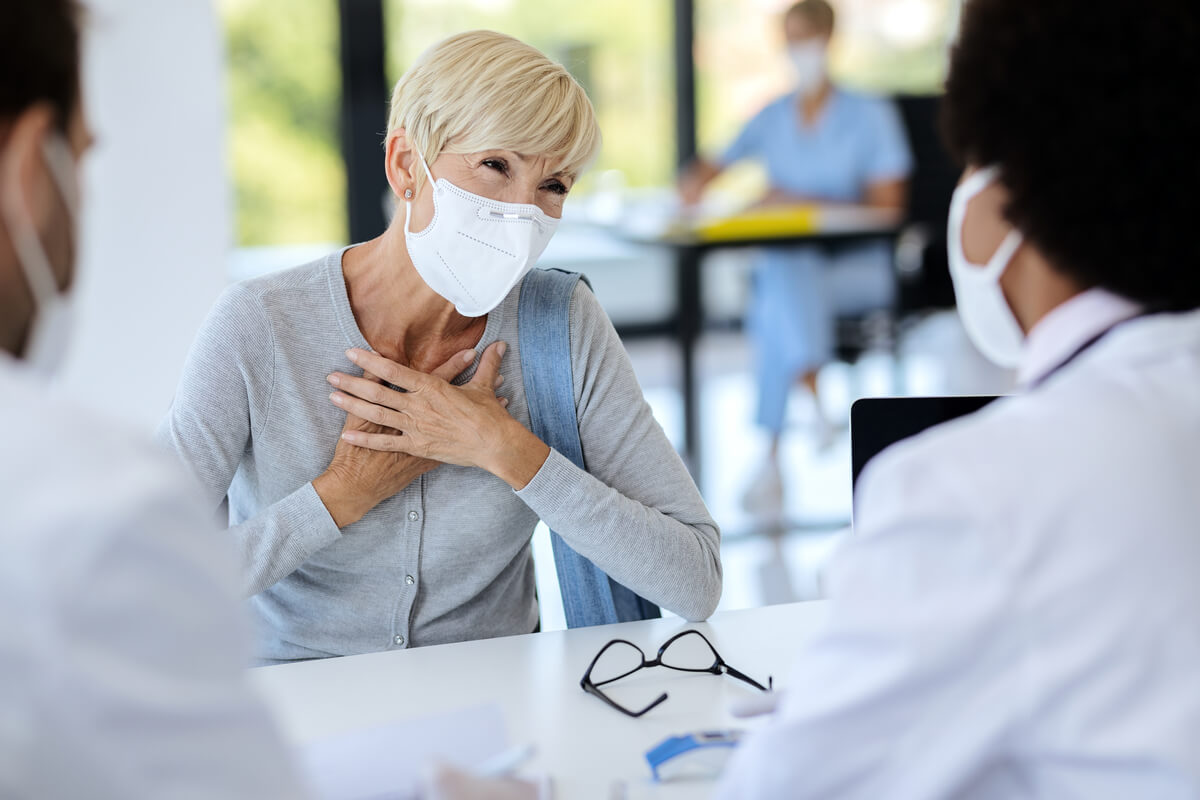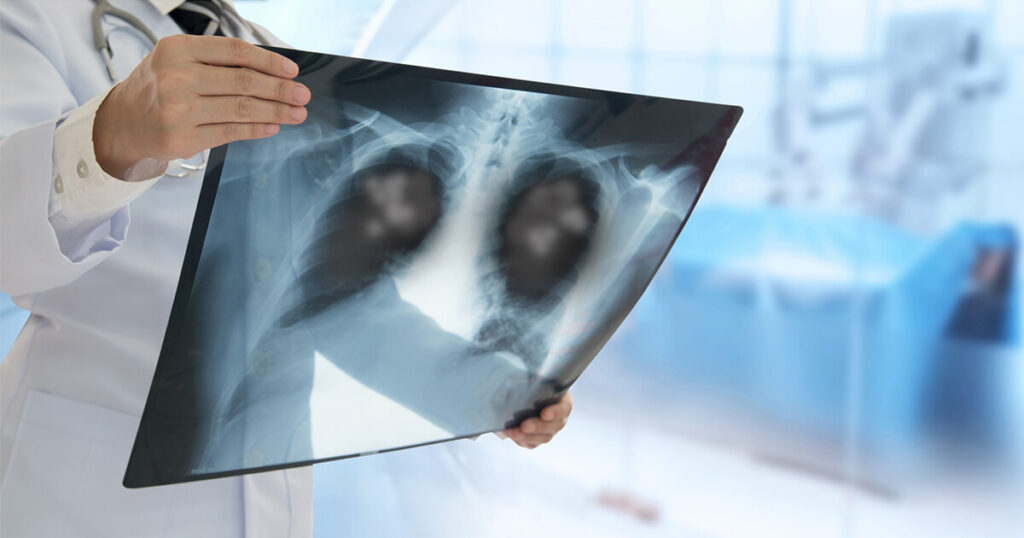Key Takeaways
- Pneumonia can affect travelers in Thailand, especially in crowded or polluted areas.
- Preventive habits and timely vaccination greatly reduce your risk.
- Thailand’s medical facilities provide reliable care if symptoms develop.
Thailand’s tropical climate and bustling cities attract millions each year, but the same warm, humid air that draws travelers can also foster respiratory infections like pneumonia. While most visits go smoothly, understanding how to protect yourself from this common yet preventable illness helps ensure your trip stays focused on exploration, not recovery. Knowing how pneumonia spreads, what symptoms to watch for, and where to get care in Thailand keeps you safe and confident throughout your travels.
You face different risks depending on your health, age, and travel plans. Crowded areas, air pollution, and seasonal flu activity can increase exposure. Simple steps—like staying up to date on vaccines, practicing good hygiene, and seeking prompt medical advice if symptoms appear—go a long way in preventing serious illness.
Thailand’s healthcare system offers high-quality care at reasonable costs, with many hospitals experienced in treating respiratory infections. By preparing before you go and acting quickly if you feel unwell, you can manage potential risks effectively and enjoy your time abroad with peace of mind.
Contents
1. Understanding Pneumonia Risks for Tourists in Thailand
- Common Causes of Pneumonia in Thailand
- How Pneumonia Spreads Among Travelers
- Risk Factors Specific to Tourists
- Impact on Tourism and Well-Being
2. Essential Prevention Strategies Before and During Your Trip
- Pre-Travel Health Preparations
- Vaccinations and Preventive Medications
- Travel Insurance and Medical Coverage
3. Staying Safe: Practical Tips for Reducing Infection Risks
Understanding Pneumonia Risks for Tourists in Thailand
Pneumonia remains a health concern in Thailand, particularly during the rainy season and in areas with high population density. You face varying levels of risk depending on your age, health status, and travel habits, but awareness and preventive steps can significantly reduce the likelihood of infection.

Common Causes of Pneumonia in Thailand
In Thailand, pneumonia can result from bacterial, viral, or fungal infections. The most frequent bacterial cause is Streptococcus pneumoniae, which also contributes to invasive pneumococcal disease seen in local residents. Viral infections, including influenza and respiratory syncytial virus (RSV), often increase during cooler or rainy months.
Environmental conditions also play a role. High humidity and air pollution in cities like Bangkok can irritate your respiratory system, making it easier for infections to develop. Poor ventilation in crowded indoor areas—such as public transport or hostels—can further increase exposure.
If you have not received pneumococcal or flu vaccines, your risk is higher. Both vaccines are available in Thailand, even though pneumococcal conjugate vaccines (PCVs) are not part of the national immunization program.
How Pneumonia Spreads Among Travelers
Pneumonia spreads mainly through respiratory droplets when an infected person coughs or sneezes. You can also contract it by touching contaminated surfaces and then touching your mouth or nose. Shared air in buses, airplanes, or tour vans increases the chance of exposure, especially during long journeys.
Close contact with others in hostels or crowded attractions raises risk. In tropical climates, air-conditioned spaces can recirculate air, allowing pathogens to linger longer.
Maintaining distance from visibly ill individuals, washing hands frequently, and wearing a mask in congested areas can limit transmission. Most hospitals and clinics in Thailand follow strict infection control measures, but personal precautions remain essential.
Risk Factors Specific to Tourists
Certain factors make you more susceptible to pneumonia while traveling. Age, chronic medical conditions (like asthma, diabetes, or heart disease), and smoking increase vulnerability. Long flights and jet lag can weaken your immune system, while dehydration and fatigue from sightseeing can reduce your body’s ability to fight infection.
If you travel to rural areas or stay in places with limited sanitation, you may face additional exposure to airborne pathogens or dust particles. Seasonal changes—especially during the monsoon—can also heighten respiratory illness rates.
Keeping up with travel vaccinations, staying hydrated, and resting adequately between activities can help maintain your well-being throughout your trip.
Impact on Tourism and Well-Being
Pneumonia can disrupt travel plans and affect your physical and financial well-being. A mild case may require a few days of rest, but severe infections can lead to hospitalization, particularly for older adults or those with underlying conditions.
Thailand’s healthcare system offers modern facilities in major cities, and many hospitals cater to international patients with English-speaking staff. However, treatment costs can be high without travel insurance.
To safeguard your health, consider preparing a personal health checklist:
| Step: Vaccinations | |
|---|---|
| Why It Matters | Reduce risk of severe infection |
| Step: Travel insurance | |
|---|---|
| Why It Matters | Covers emergency care costs |
| Step: Mask use in crowded areas | |
|---|---|
| Why It Matters | Lowers exposure to droplets |
| Step: Adequate rest and hydration | |
|---|---|
| Why It Matters | Supports immune function |
Taking these measures helps you continue exploring Thailand safely while minimizing the risk of pneumonia during your stay.
Essential Prevention Strategies Before and During Your Trip
Taking a few health precautions before you travel to Thailand can significantly reduce your risk of pneumonia and other respiratory infections. Staying current on vaccinations, preparing a personal health plan, and ensuring your medical coverage works abroad help you travel with confidence and peace of mind.

Pre-Travel Health Preparations
Schedule a pre-travel health consultation at least six weeks before departure. This allows time for vaccinations, preventive medications, and medical advice tailored to Thailand’s climate and environment.
Pack a basic health kit with items such as hand sanitizer, a thermometer, and any prescription medications in their original packaging. Include copies of prescriptions and your doctor’s contact details.
If you have chronic respiratory conditions, ask your healthcare provider for a written action plan and ensure you have enough medication for the entire trip. Avoid exposure to air pollution by checking Thailand’s Air Quality Index (AQI), especially in cities like Bangkok and Chiang Mai.
| Item: N95 or surgical masks | |
|---|---|
| Purpose | Protection from air pollution and respiratory droplets |
| Item: Hand sanitizer (≥60% alcohol) | |
|---|---|
| Purpose | Reduces infection risk when soap isn’t available |
| Item: Travel-size disinfectant wipes | |
|---|---|
| Purpose | Keeps high-touch surfaces clean |
Vaccinations and Preventive Medications
Make sure your routine vaccinations are up to date, including influenza, measles, and diphtheria-tetanus-pertussis (Tdap). These illnesses can increase your susceptibility to pneumonia.
Ask your doctor about pneumococcal and influenza vaccines, which are especially recommended for older adults, young children, and travelers with chronic illnesses. The pneumococcal vaccine helps prevent bacterial pneumonia, while the flu shot reduces the likelihood of secondary lung infections.
If you plan to visit rural or forested areas, discuss malaria prophylaxis and mosquito protection, as respiratory illness can worsen if combined with other infections. Keep a record of your vaccination dates and carry it with your travel documents.
Travel Insurance and Medical Coverage
Purchase comprehensive travel insurance that includes coverage for medical treatment, hospitalization, and emergency evacuation. Verify that it covers respiratory illnesses and access to private hospitals, which often provide faster care in Thailand.
Check whether your policy includes direct billing with major hospitals such as Bumrungrad International or Bangkok Hospital. This prevents out-of-pocket expenses during emergencies.
If you take HIV pre-exposure prophylaxis (PrEP) or other long-term medications, confirm that your insurance covers refills abroad. Keep emergency contact numbers and your insurer’s assistance hotline saved on your phone and printed in your travel wallet.
Staying Safe: Practical Tips for Reducing Infection Risks
Taking preventive measures helps you stay healthy during your time in Thailand. Paying attention to hygiene, air quality, and underlying health conditions can significantly reduce your risk of respiratory infections and other illnesses common in tropical climates.

Hygiene and Respiratory Etiquette
Washing your hands regularly with soap and water remains one of the most effective ways to stop the spread of infectious diseases. Carry alcohol-based hand sanitizer for times when clean water isn’t available.
Avoid touching your face, especially your mouth, nose, and eyes, after contact with public surfaces. When coughing or sneezing, cover your mouth and nose with a tissue or your elbow to reduce droplet spread.
If you feel unwell, wear a surgical or KN95 mask in public areas. This protects others and reduces your exposure to airborne pathogens. In crowded areas such as Bangkok’s transit systems or night markets, maintaining this basic etiquette helps keep both locals and travelers safer.
Avoiding High-Risk Environments
Hospitals, crowded public transport, and poorly ventilated indoor venues can increase your infection risk. Try to visit open-air restaurants and avoid peak travel hours on trains and buses.
During the rainy season, stagnant water can attract mosquitoes that carry malaria and other vector-borne diseases. Use insect repellent containing DEET, and wear light, long-sleeved clothing in rural areas or at dusk.
Practice safe sex by using condoms to prevent sexually transmitted infections (STIs), including HIV. Clinics in major cities like Bangkok and Chiang Mai offer confidential testing and treatment. Staying cautious about both environmental and personal health exposures ensures a safer trip.
Dealing with Air Pollution (PM2.5) in Major Cities
Air quality in Bangkok, Chiang Mai, and other urban centers can drop sharply during dry months due to PM2.5 pollution. Prolonged exposure may irritate your lungs and increase susceptibility to pneumonia or bronchitis.
Check daily air quality reports through apps or local news before heading outdoors. When levels exceed 100 on the AQI scale, limit outdoor exercise and close windows to keep indoor air cleaner.
Use air purifiers with HEPA filters in hotel rooms or apartments. Wearing N95 masks outdoors can reduce inhalation of fine particles. Staying hydrated and avoiding smoking further supports lung health in polluted environments.
Managing Pre-existing Lung Conditions While Traveling
If you have asthma, COPD, or another chronic respiratory condition, plan your trip with medical care in mind. Carry a written summary of your diagnosis, medications, and emergency contacts.
Pack extra inhalers, nebulizer solutions, or prescribed antibiotics, as brands and formulations may differ in Thailand. Major hospitals such as Bumrungrad International Hospital in Bangkok provide reliable respiratory care and English-speaking specialists.
Avoid exposure to cigarette smoke, incense, and open cooking fires, which can worsen symptoms. Schedule rest days during travel to prevent fatigue and monitor your breathing daily. Accessing preventive care early helps you stay comfortable and confident throughout your visit.
Getting Medical Care for Pneumonia in Thailand
You can find reliable medical care for pneumonia throughout Thailand, especially in major cities like Bangkok. Understanding symptoms early, knowing where to go, and being prepared for treatment options helps you handle the situation calmly and efficiently.

Recognizing Symptoms and When to Seek Help
Pneumonia often begins with persistent coughing, fever, chills, and shortness of breath. You may also feel chest pain when breathing or notice fatigue that worsens quickly. If symptoms escalate or you experience difficulty breathing, seek medical attention immediately.
In Thailand’s tropical climate, respiratory infections can progress faster due to humidity and air quality. Do not self-medicate for more than a few days without improvement. Visit a clinic or hospital if your fever exceeds 38°C, your cough produces discolored phlegm, or you feel chest tightness.
For travelers with chronic conditions such as asthma or diabetes, early consultation with a doctor is especially important. Many hospitals provide English-speaking physicians who can evaluate your symptoms and recommend chest X-rays or blood tests to confirm the diagnosis.
Accessing Hospitals and Clinics in Bangkok and Beyond
Thailand’s healthcare system includes public hospitals, private hospitals, and international clinics. In Bangkok, large private institutions like Bumrungrad, Bangkok Hospital, and Samitivej Hospital are known for modern facilities and multilingual staff.
You can expect shorter waiting times and clear communication in private hospitals, though costs are higher. For minor or moderate symptoms, smaller clinics in tourist areas such as Chiang Mai, Phuket, and Pattaya can provide initial assessments and referrals.
| Type: Public Hospital | |
|---|---|
| Typical Features | Basic care, longer wait, Thai-speaking staff |
| Approximate Cost Range (THB) | 500–2,000 |
| Type: Private Hospital | |
|---|---|
| Typical Features | Faster service, English-speaking doctors |
| Approximate Cost Range (THB) | 2,000–10,000+ |
| Type: International Clinic | |
|---|---|
| Typical Features | Tourist-focused, convenient locations |
| Approximate Cost Range (THB) | 3,000–8,000 |
Carry your passport and travel insurance details when visiting any facility. Most hospitals accept international insurance or can issue receipts for later reimbursement.
Navigating Medical Tourism and Emergency Care
Thailand is a major hub for medical tourism, offering quality healthcare at lower costs than many Western countries. If you need hospitalization for pneumonia, you can expect clean facilities, modern equipment, and attentive nursing care.
Private hospitals often have dedicated international patient centers to help with translation, billing, and insurance claims. You can also request airport transfers or hotel coordination if you require extended care.
In an emergency, dial 1669 for the national ambulance service or go directly to the nearest hospital’s emergency department. Keep the contact number of your embassy or travel insurer handy in case you need assistance with logistics or payment guarantees.
If you are traveling outside major cities, plan ahead by identifying regional hospitals that can provide chest X-rays and antibiotics. Many rural hospitals are well equipped for basic pneumonia treatment and can arrange transfers to Bangkok if intensive care becomes necessary.




